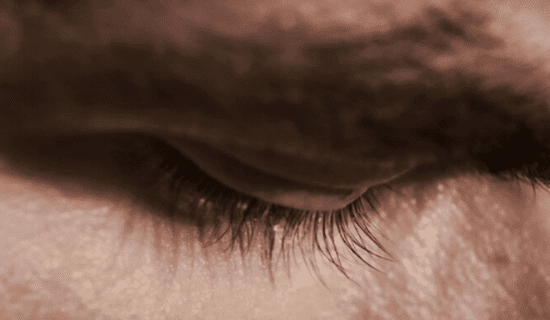Compensation For Emotional Distress: What Are Your Rights?
Many people are aware that someone who is seriously injured, or worse, can recover damages from the entity responsible for their injury. Damages are almost always in the form of financial payments, and personal injury damages typically cover monetary losses or costs associated with the injury. These costs might include hospital or physical therapy bills, lost wages due to time away from work, mechanic fees for fixing a damaged vehicle and so on. But did you know you might also be entitled to compensation for emotional distress? What are your rights regarding emotional suffering that you have sustained from either witnessing or being involved in a life-altering injury or tragedy?
Can Emotional Distress Be Addressed In Personal Injury Lawsuits?
First, it’s important to know that you do have rights in a personal injury lawsuit when it comes to emotional suffering. If you have been injured or someone you love was injured or even killed due to someone else’s negligence, it could have a lasting effect on your entire life. This includes the very real psychological impact that injuries can carry.
If you have sustained injuries from a truck accident, injuries while on the job or have been injured in some other situation, you might grapple with profound feelings of depression or anger, along with the physical pain and difficulty of your injury and subsequent recovery. If your injury causes a permanent physical handicap or chronic pain, such as what might result from common construction site injuries or other traumatic workplace accidents, the effects of dealing with that will be both physical and emotional, and you may deserve compensation for both.
If you lose a family member or loved one in a tragic accident, you may also be entitled to compensation for your own emotional distress. The death of a loved one is a devastating event that causes significant stress in the lives of those left behind. If the death was caused by an accident that could have been avoided, this can provoke overwhelming, ongoing feelings of anger, sadness, helplessness and depression. These feelings certainly have a great personal cost, and they may carry a financial cost as well.
 Examples of Emotional Distress
Examples of Emotional Distress
Some people must seek counseling or take medication to cope with the intense feelings they experience after a major accident or injury. Others endure a significant loss of quality of life due to the injury, and may even be rendered unable to work or otherwise function normally—major life changes that can have a profound psychological impact. When a traumatic injury or the loss of a loved one to a tragic accident leads to a medical diagnosis of some type of emotional distress, this may be considered in a personal injury lawsuit as deserving of financial compensation.
Some examples of emotional distress following a traumatic injury or loss of a loved one that could merit compensation in a personal injury lawsuit include a professional diagnosis of:
- Post-Traumatic Stress Disorder (PTSD)
- Anxiety
- Depression
- Panic attacks
- Substance abuse
Sometimes, a diagnosis of a physical condition can serve as further evidence of emotional distress following an accident or injury. Stomach ulcers, chronic headaches and insomnia or other sleep disorders that have developed as a physical manifestation of emotional suffering can all be important considerations in a personal injury lawsuit.
 Emotional Distress Lawsuit Settlement: Examples
Emotional Distress Lawsuit Settlement: Examples
Since emotional distress is a personal and therefore subjective experience, it does not always require a professional diagnosis in order to be considered in a personal injury lawsuit. Even if the injured person has not been diagnosed by a psychologist or medical professional with any of the above well-known diagnoses, the lawsuit can sometimes be settled in their favor, including damages for emotional distress.
Some examples of emotional distress that might not be professionally diagnosed but which might still be included in a personal injury lawsuit include significant, intense and repeated feelings or episodes of:
- Fear or fright
- Humiliation
- Crying
- Stress
- Panic
Sometimes, emotional distress due to an injury or loss can lead to further, compounded effects later on. An example of this would be a job site accident resulting from oil rig dangers or other on-the-job hazards that causes a worker to lose his hand, which then makes him unable to work. The loss of his limb plus the loss of function and quality of life, in turn, caused depression and substance abuse, which could lead to tension and strain in his marriage, ultimately leading to divorce—which then compounded the emotional impact of the entire situation.
In a personal injury example like this, the accident and injury were the cause of everything that came after, including multiple stages of emotional pain and suffering. An experienced and competent personal injury law attorney can establish this cause-and-effect relationship between the injury and its multiple, compounding emotional effects for the client, and can work to secure much-deserved compensation.
 Mental Anguish and Emotional Distress
Mental Anguish and Emotional Distress
Mental anguish and emotional distress are closely related in the context of a personal injury case. As with emotional pain and suffering, mental anguish refers to conditions including depression, anxiety, fright, grief and other significant emotional trauma. Mental anguish damages are usually connected to cases involving wrongful death, disfigurement or serious bodily injury that led to profound sadness and distress for the injured individual.
In most cases and states, suing for emotional distress damages must be done in conjunction with a physical injury lawsuit, as opposed to emotional distress that was not caused by an injury or accident. In the state of Texas, however, a plaintiff may sue for mental anguish damages without physical injury in one of a limited number of circumstances. Those circumstances include:
- Bystander cases (when the individual has witnessed a traumatic accident and suffered profound mental anguish as a result)
- Invasion of privacy
- Defamation (when the individual has suffered mental anguish due to his or her reputation having been damaged by malicious gossip, libel or slander)
- Child abduction (when the abduction of the individual’s child caused profound mental anguish not just for the child, but for the individual as well)
 Calculating Emotional Distress Damages
Calculating Emotional Distress Damages
Due to the subjective nature of emotions, calculating emotional distress damages is not an easy task, and there is no established formula for doing so. To secure compensation for a client, a personal injury attorney must prove not only that the client’s injury had a significant emotional impact, but also that the impact was severe enough to carry a burden worthy of financial recompense.
Part of this might be a relatively straightforward calculation, such as if the client attended counseling sessions following the injury, or was prescribed antidepressant or antianxiety medication by a psychiatrist. Those situations come with receipts bearing dollar amounts—actual money that was spent on recovery.
But a large portion of emotional distress damages are not straightforward in the least. How can one attach a monetary amount to suffering? Grief, depression, anxiety, panic and stress—all of these are psychological conditions that fluctuate over time and can extend for months, years or even for the rest of a person’s life. How can a price be put on this type of damage?
There are several things a personal injury lawsuit client can do to help clarify the process of determining damages for emotional distress. One way is by writing regularly in a journal about feelings experienced following the accident. This will be an important tool both in seeking medical treatment for emotional distress and when seeking damages for suffering in the lawsuit. Journals can be an important part of proving that emotional distress was a direct result of the injury and not simply a preexisting condition, and they can also serve as a private outlet for personal feelings.
Journal entries chronicling the psychological impact of an injury can be especially helpful in a personal injury lawsuit when there is no specific medical diagnosis of an emotional condition like depression, anxiety or PTSD. Journal entries that describe the client’s emotional struggles can be used as a moving and convincing piece of evidence to prove that compensation is merited. This type of evidence is greatly strengthened when it comes along with support from a medical professional, such as testimony or session notes from a licensed therapist who treated the individual following the injury.
As a general rule of thumb, calculating emotional distress damages depends a great deal upon the severity of the individual’s emotional suffering. Everyone experiences a degree of emotional distress after any injury; the key is proving that the distress caused by an injury was profound or traumatic enough to merit compensation.
In some personal injury cases, attorneys can prove that there was an intentional infliction of emotional distress upon their client. One example of this is in a case of a car accident that involved road rage—when the defendant’s violent display of anger caused an accident that led not only to the client’s physical injury, but also to significant feelings of fear, panic or other emotional suffering.
Slack Davis Sanger Can Help You Attain Justice
The personal injury attorneys at Slack Davis Sanger have extensive experience with being strong and compassionate advocates for our clients who have been injured or lost a loved one in a traumatic accident. We work diligently to seek the maximum possible damages for emotional distress resulting from an injury or wrongful death. If you have experienced emotional distress or mental anguish due to an accident and wonder if you have a case, call Slack Davis Sanger today. We can help you determine the best course of action to obtain the compensation you deserve.

The firm handles cases involving catastrophic personal injuries and deaths. Our work spans three decades of handling airplane and helicopter crashes, truck and car accidents, oilfield and construction accidents, and other devastating accidents. We try lawsuits throughout the country in both federal and state courts and have recovered hundreds of millions of dollars for our clients. To date, we have handled or tried cases in 47 states, read more about our attorneys and firm.
